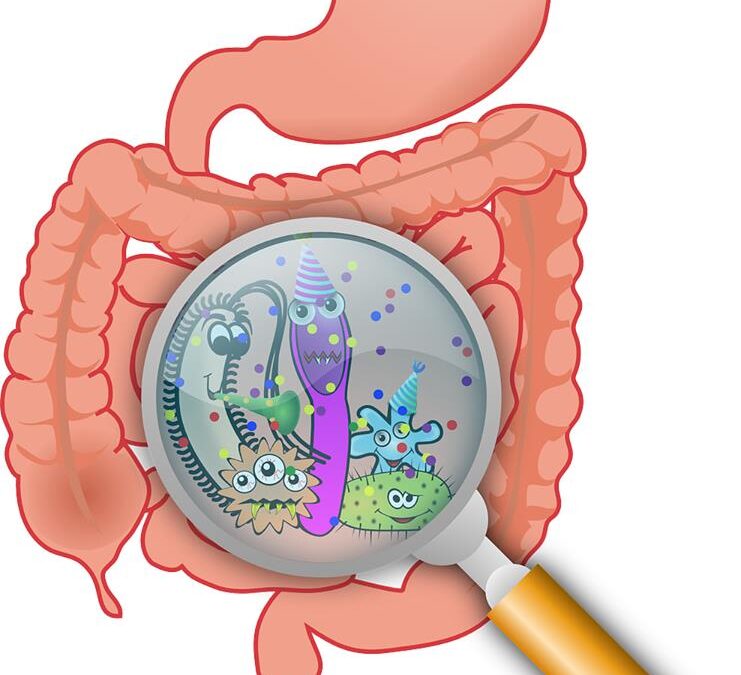A recent study found that sulforaphane (SFN), a compound derived from plants of the Brassicaceae family, e.g., broccoli, induces a pro-oxidative state in untransformed human T-cells of healthy donors or RA patients.
The study concluded SFN significantly inhibited the activation
of untransformed human T-cells derived from healthy donors or RA patients, and downregulated the expression of the transcription factor RORγt, and the TH17-related cytokines IL-17A, IL-17F, and IL-22, which play a major role within the pathophysiology
of many chronic inflammatory/autoimmune diseases.
Autoimmune diseases are a broad range of more than eighty related disorders, ranging from common to very rare. They affect around 5% of people and are an important health issue in Australia and New Zealand:
Common autoimmune diseases include thyroiditis, rheumatoid arthritis and diabetes.
Less commone autoimmune diseases include systemic lupus erythematosus (SLE), also known as lupus, and vasculitis disorders (inflammation of blood vessels).
Emerging data suggest that Th17 cells are highly auto-pathogenic and can induce tissue inflammation and autoimmune disease and Th1 cells have been implicated in the development of organ-specific autoimmune diseases. Studies have shown that in organ-specific T cell driven autoimmune diseases, Th1 cells were described to be the pathogenic subset whereas Th2 cells were reported to exert inhibitory effects.
Research also shows that the balance of bacteria in our gut influences the balance of our immune system; an unbalanced bacterial flora with for instance, too many opportunistic pathogens that can shift the immune system to a disruption in the epethilial interface, which in turn reduces the ability of the gut wall to prevent the intrusion of unwanted food molecules, environmental chemicals and pathogenic microbes.
Increasingly, research findings prove that keeping a delicate balance in the immune system by eliminating invading pathogens, while still maintaining self-tolerance to avoid autoimmunity, is critical for the body’s health.
The gut microbiota that resides in the gastrointestinal tract provides essential health benefits to its host, particularly by regulating immune homeostasis. Moreover, it has recently become obvious that alterations of these gut microbial communities can cause immune dysregulation, leading to autoimmune disorders.
Sulforaphane (SFN), an isothiocyanate, is part of an important group of naturally occurring small molecules with anti-inflammatory properties.
Data published in 2014 show that SFN improves Th17/Th1-mediated autoimmune disease by inducing HO-1 and inhibiting NF-κB p65-regulated IL-23 and IL-12 expression.
Interleukin-23 (IL-23) is a member of the IL-12 family of cytokines with pro-inflammatory properties and have shown the ability to potently enhance the expansion of T helper type 17 (Th17) cells tht indicates the responsibility for many of the inflammatory autoimmune responses.
Our practitioners  are able to provide for you a scientifically & clinically proven Nutrigenomic program that not only provides high quality sufurophane, but also provides modulation of the immune response and simutaneously targets infection control, IgE-mediated allery and dysregulated inflammatory responses, largely seen in many auto-immune conditions.
are able to provide for you a scientifically & clinically proven Nutrigenomic program that not only provides high quality sufurophane, but also provides modulation of the immune response and simutaneously targets infection control, IgE-mediated allery and dysregulated inflammatory responses, largely seen in many auto-immune conditions.
 are able to provide for you a scientifically & clinically proven Nutrigenomic program that not only provides high quality sufurophane, but also provides modulation of the immune response and simutaneously targets infection control, IgE-mediated allery and dysregulated inflammatory responses, largely seen in many auto-immune conditions.
are able to provide for you a scientifically & clinically proven Nutrigenomic program that not only provides high quality sufurophane, but also provides modulation of the immune response and simutaneously targets infection control, IgE-mediated allery and dysregulated inflammatory responses, largely seen in many auto-immune conditions.Immunomodulatory effects of the program encourage a balance between Th1 & Th2 cells which has shown to increase infection control and decrease the allergic response.
Appointments for this program are available online through @phoenixrisingfx. We also provide access to a closed group where you will be provided with additional tools to assist you through the program.




